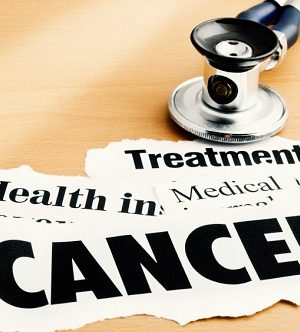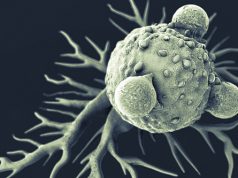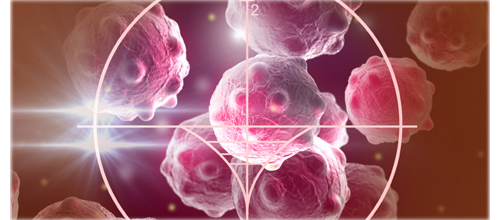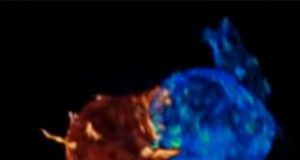CAR T-Cell Therapy: A Viable Option?
Chimeric antigen receptor (CAR) T-cell therapy is the first form of gene therapy approved in the U.S. CAR T-cell therapy works with the patient’s own immune system to help boost the cancer-killing effects of the T lymphocyte (T-cell), a white blood cell. It’s a complicated engineering process of the T-cell. It is not a chemotherapy as traditionally used in cancer treatment.
CAR T-cell therapy is under study in patients with relapsed and refractory malignancies such as lymphomas and leukemias. The first approval, Kymriah (tisagenlecleucel), was approved for pediatric and young adult patients with a form of acute lymphoblastic leukemia (ALL). These patients have run out of viable options for cancer treatment, which include surgery, radiation, chemotherapy, and bone marrow transplant.
The processes requiured to gather the T-cells (apheresis), attach the CAR T receptor via genetic engineering, and then re-infuse the cells back into the patient is a long, complex and expensive process. However, the question remains — will these products be commercially viable and accessible by patients? How will insurance pay for these treatments? What will be the patient’s responsibility in paying?
Learn More: CAR T-Cell Therapy: A Healthcare Professional’s Guide – Mechanism of Action
Learn More: CAR T-Cell Therapy: A Healthcare Professional’s Guide – Manufacturing
The Complexity of CAR T-Cell Therapy
As pointed out in AJMC, challenges to commercialization include:
- Maintaining accredited Good Manufacturing Practice (GMP) facilities for CAR T-cell manufacturing.
- Ongoing monitoring of very fragile patients.
- Shortening the manufacturing time from apheresis to eventual re-infusion to the patient, currently about 2.5 to 3 weeks.
- Freezing and cryogenic transportation of CAR T-cells once engineered with the CAR construct receptor.
- Ongoing education for health care providers, patients and families
Manufacturing a patient-specific product such as this is difficult to scale in order to lower production costs. However, research is ongoing to develop “off-the-shelf” or universal CAR T-cells that could reduce costs, and, even more importantly, hasten delivery to cancer patients who may have no other treatment options.
Learn More: CAR T-Cell Therapy: A Healthcare Professional’s Guide – Adverse Events
Logistics of CAR T-Cell Therapy
The timing and delivery logistics of CAR T-cell therapy could be taxing for the healthcare system:
- Academic and larger tertiary care centers are expected to be CAR T-cell centers of excellence; patients will need referral from their local oncologists to be treated at these specialized facilities.
- Travel expenses, transporation, and boarding for patients, families and other caregivers may lead to added financial hardships.
- A medical referral and insurer prior authorization process would be expected. For such a complicated and costly treatment, patients will be reviewed by payers to determine prior treatments and clinical eligibility. A quick turnaround review time will be important for these fragile patients.
- The time from apheresis, to manufacturing, to re-infusion of engineered CAR T cells back into the patient can range from 2.5 to 3 weeks; some patients may not tolerate this extended period. However, manufacturers are implementing continuous quality improvement processes to shorten this production time.
Education and Side Effects of CAR T-Cell Therapy
Education for patients, families, and health care providers will be a large component of CAR T-cell therapy. The complicated mechanism of action, manufacturing process, administration, risks, side effects, and cost issues will need to be adressed.
In this fragile and very sick patient population, serious adverse reactions such as:
- Cytokine release syndrome
- Neurotoxicity
- Cerebral edema
- B cell aplasia
require immediate medical attention. Nursing staff, as well as family members, must be able to recognize these dangerous complications, as there may be a delay in some side effects. However, researchers have dealt with many of these side effects in bone marrow transplant patients.
The approved CAR T-cell therapies, Kymriah (tisagenlecleucel) and Yescarta (axicabtagene ciloleucel), are only available through a restricted program under a Risk Evaluation and Mitigation Strategy (REMS) called the Kymriah REMS and the Yescarta REMS. These programs are in place to help lower the patient’s risk for serious, possibly fatal, adverse events.
Learn More: CAR T-Cell Therapy: A Healthcare Professional’s Guide – Cancer Targets






